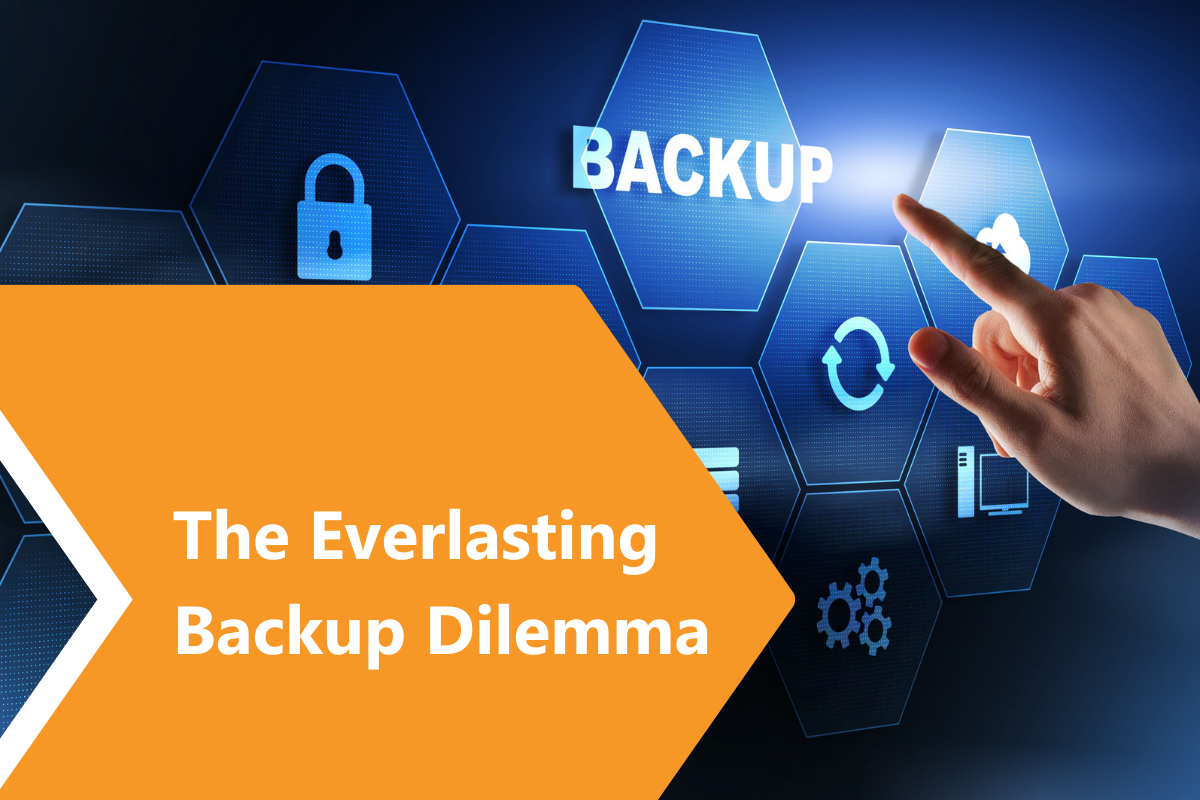Try PCmover
Please note the Evaluation copy of PCmover Enterprise requires you to be logged into a domain when testing. If you would like to test Enterprise without this requirement, please contact corpsales@laplink.com to receive an alternate copy of the software.
Thank you for your interest, and for choosing Laplink Software!
Contact Sales

The Everlasting Backup Dilemma
The Problem
Every time a device breaks or a hard drive crashes, we remember the need to back up our data. The majority of us have no current backup. What is worse, we have no backup plan. Today, all of our valuable data – documents, pictures, videos – are scattered over different devices and different backup media. The amount of data we store is growing every day. Gartner predicted that the average storage per household will reach 3.3 terabytes in 2016, of which 64% will be stored locally[i]. With the emergence of mobile devices and the quality of media captured at any moment in our life, data volumes are increasing exponentially.
And yet, we spend little time thinking about how to securely store data: this is part of the everlasting backup dilemma we all face.
Many options to consider.
Business users are very diligent when protecting corporate data. Data is captured on servers which have two sets of safety precautions tied to the operation. Most data servers run with RAID systems which are able to recover the data even if one of the hard drives crashes. Additionally, servers are backed up (often daily) to counteract any server failure. This is too pricey and too complex for any household to try implementing, but the principles should apply anyway: backup and backup the backup!
The easiest way to back up your data is with cloud providers. They offer a vast amount of storage with security built in.
In Windows 10, Microsoft makes it easy to store your data with OneDrive. Google and Apple offer similar services, but for PC users, OneDrive is nicely integrated with your PC. However, as the forecast from Gartner shows, most users will not consider online storage for all their data. Some might not like to have their data in the hands of others, some feel that online data is subject to government snooping, and others just don’t want to keep it locally. Period.
All points make sense; we have to ask ourselves if online storage is “forever”? Will providers shut down unused accounts that are used for longtime storage? Do I always have access to the data?
The majority, however, choose local storage, which means having external or internal hard drives with enough space for us to load the backups or sync our data. There is nothing wrong with it, but we have to remember: backup the backup. Hard drives do go down. I remember that my backup external drive broke the very same time as the internal drive. I still believe it was some kind of power surge. Some heavy data users in a household have a separate data server which will need to be backed up as well.
Another good option is DVD storage. Common DVDs hold 4.7 GB of data; that is a lot of space for documents and pictures, but not for movies or high resolutions graphics. Blu-ray disc provide storage capacity up to 100 GB of data.
With the availability of inexpensive high capacity hard drives at about $ 50 per terabyte, we have dismissed the good old CD. They are easier to manage, but – and this is a big but – hard drives do break.
Organization is key.
No matter what medium we choose, organization is key. With so much data being collected, we have to organize our data in order to find it again. And that is another problem with online data storage, where folders grow out of control, or we collect hard drives as much as the data itself. How do we ever want to find the right data? (Granted, the search tools are wonderful these days and they do find a lot of stuff fast.)
However, with more data, we have to create a good system of what to store, how to store it, and how to retrieve it. Since everyone likes their own system, it is hard to prescribe the perfect system. I do like to back up my PCs at a certain time and archive the image. Backing up your whole PC will also preserve your applications, which might be necessary to run to interpret the data. I also recommend a backup of all external drives periodically.
A new and innovative local storage solution.
Recently I got re-introduced to M-Disc, a long term storage solution that is both secure and very long-lasting. M-Disc is a new kind of DVD and Blu-ray disc, which lasts basically forever and is a perfect medium for storage. Capacity is the same at 4.7GB (DVD), 25 GB (Blue-ray) and 100GB (Blue-ray), although the lifetime has been extended tenfold.
With M-Disc, you can have a secure and long-lasting archive of your data, your PC images and the various libraries you wish to keep. They are local and can be stored in any place (i.e. your bank vault).
Even if the initial costs of having an M-Disc compatible drive and the discs might be a touch higher, it is a cheaper solution for the long run. Check out www.mdisc.com and learn about this innovative approach.
Ashampoo (www.ashampoo.com) and Nero (www.nero.com) are two companies who embraced this new technology with their burning software.
[i] “Forecast: Consumer Digital Storage Needs, 2010-2016.” The report is available on Gartner’s website here.
Thomas Koll, CEO

As Chairman of the Board and CEO of Laplink, Thomas guides the company’s strategic direction. Prior to joining Laplink in 2003, Thomas was Chairman of the Board for Infowave, where he was involved in interfacing with global business and financial communities. Thomas also served as Infowave’s Chief Executive Officer from February 2001 to April 2002. Prior to joining Infowave, Thomas worked at Microsoft for more than 13 years. He was Corporate Vice President of Microsoft’s Network Solutions Group where he was responsible for Microsoft’s worldwide business with telecommunication companies. Thomas was instrumental in developing Microsoft’s vision for the communications industry and led the development of strategic partnerships in mobility, broadband and hosting. Previously, he was General...
Read more about Thomas Koll, CEO...


Add Comment